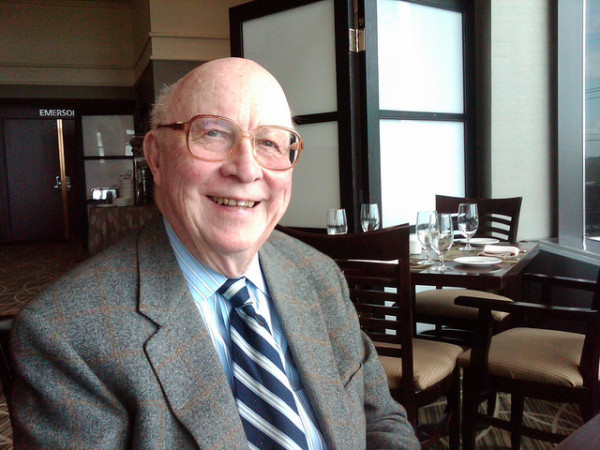“I’ve never started an organization that ended up doing what it was originally intended to do,” Arthur Nelson once told me. Coming from the founder/co-founder of over twenty organizations (half of them nonprofits like TERC), his statement has stuck with me for over twenty-five years.
Arthur explained that entrepreneurship is like standing in the fog with a compass. The general direction is known, but the path is hazy. The only way to identify the shapes in the distance is to walk toward them.
“Until the entrepreneur goes out there and tries something, an accurate picture of the problem cannot be determined,” he said. By following his own compass into the mist, Arthur learned that he’d eventually uncover more important needs that clients would be willing to pay for.
For example, fifty years ago, Arthur’s childhood friend Jim Boyce introduced him to Max Millikan, the founder of the Massachusetts Institute of Technology’s Center for International Studies. Jim and Max were working on a social problem–the fact that although the United States was becoming a global economic powerhouse, its private enterprises didn’t understand foreign business. Ignorant to local customs, monetary exchanges and business practices, US business professionals often found themselves in embarrassing situations.
Arthur joined Max and Jim to find a solution. “We decided that to do so, we’d form a business to support the activities of government, private business and multinational corporations.” The three men formed Associates for International Research (AIRINC) in 1954.
With the team on board and the mission established, AIRINC sought funding. “We made unsolicited proposals to various government agencies, seeking to perform international research services,” Arthur said. And although these proposals were targeted at helping businesses understand international cultures, the federal government asked AIRINC for help with another problem. The State Department wanted to learn more about the Balkans, including such things as economy, culture, etc. AIRINC had just landed the first of many government contracts.
By 1958, the company had developed ideas, techniques, and volumes of information. But they had a business problem. Since all of AIRINC’s revenue came from government contracts, the team worried about long-term business sustainability. “We were convinced that we needed to create some product, something that would help break our reliance on soft money. As luck would have it, we had stumbled upon a commercial problem.”
Mobil Oil approached AIRINC about an issue with its American employees living in Indonesia. The employees complained that their compensation was inadequate to live abroad and Mobil executives didn’t understand the complaint. According to State Department data, it cost 33% more for an American to live in Indonesia. Therefore, Mobil simply added 33% to their base pay (over-base compensation) and assumed that the employees would make the necessary adjustments to live within that budget. However, with the expatriates on the verge of revolt, Mobil sought a second opinion.
“At the time, we had no way of determining how much it would cost us to actually execute on the contract,” Arthur said. “But we felt that it was indeed another researchable problem, and it was well worth the risk to do so. We accepted the contract and went to work. We asked ourselves questions such as how much does an average family consume in a year? How many pounds of beef? How many cans of beans? We interviewed employees. We took them shopping. We went house hunting with them.”
It didn’t take too long for AIRINC to understand the problem. The over-base compensation tables provided by the State Department were flawed. Developed to compensate diplomats living overseas, they didn’t account for government perks such as subsidized stores (the “PX”) that were located on military bases. AIRINC’s final report validated the employees’ claim. It was more expensive for American expatriates to live in Indonesia.
Although AIRINC had lost money on that first contract, it had also developed an objective approach to determining over-base compensation.
“And the more we looked at the tables, the more we saw the product that we were looking for to break our reliance on soft money. Mobil liked the results and asked us if we could apply our methodology to other facilities located across Europe and Latin America. In 1959, Amoco approached us to solve their problem. In 1960, General Dynamics came knocking. It didn’t take us long to see that if the cost of the surveys could be amortized over many customers, then the resulting margins would be positive.”
Fifty years later and AIRINC is still in the over-base compensation business. According to its website, the company “…manages over 850 client accounts from five full-service offices in Cambridge, Massachusetts, USA; Brussels, Belgium; Amsterdam, Netherlands; London, UK; and Hong Kong, China as well as a satellite office in Munich, Germany.”
“No, we didn’t end up educating American business people about doing business in foreign countries,” Arthur said, “at least not the way that we had originally planned. Instead, we uncovered an opportunity that we never would have been able to uncover had we not started our international research company.”
By walking into the fog with his compass.
